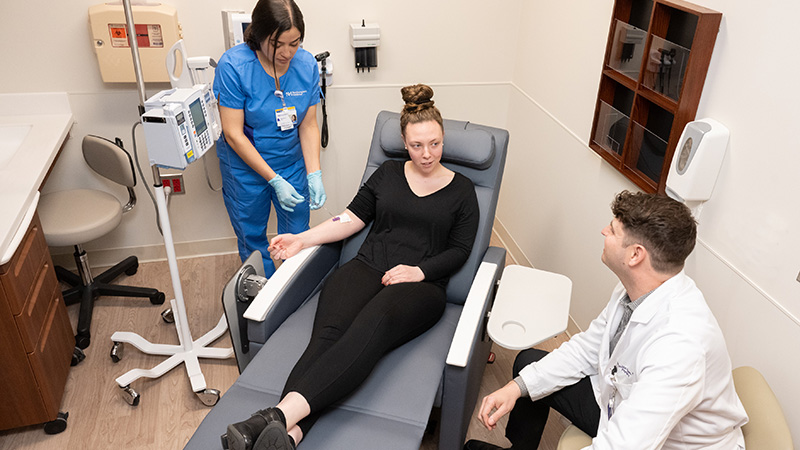The Heart-Mind Connection
Cardiovascular Disease Closely Linked to Depression
Updated February 2024
The mind and body are strongly linked, and depression is a common mental health disorder linked to cardiovascular disease. If you’ve been diagnosed with cardiovascular disease, it’s important to address not just your heart health, but your mental health, too.
Research shows that two out of every five people who have had a major cardiac episode experience symptoms of clinical depression. And, according to the American Heart Association, 33% of patients who have had a heart attack experience depression. Major surgery, such as open-heart surgery, can also lead to depression.
Why It Matters
Be open to an evaluation for depression.— Kim L. Feingold, PhD
If you have depression and cardiac disease, regardless of which diagnosis came first, you are more likely to have a poor outcome from your illness. Multiple studies have been conducted on this topic over the past couple of decades, and they show that people who have depression and cardiac disease may be at increased risk of:
- Premature death
- Longer hospitalization
- Re-admission to the hospital
- Progression of disease
- Poor quality of life
This can be due to lifestyle factors: If you are depressed, you may be less likely to follow a healthy diet and get proper exercise, and more likely to smoke and drink alcohol. Depression is also linked to higher levels of inflammation in the body, which can worsen cardiovascular disease.
The Role of Mental Health Support
Because depression is so closely linked with cardiovascular disease and cardiac events, it’s important to include mental health care in your cardiovascular treatment plan. Depression can play a role in not following treatment recommendations, slow healing and increase your risk of having another cardiac event. An eight-year study conducted with 300 patients who had a certain type of cardiovascular disease and depression showed that the patients treated with antidepressant medication had better long-term outcomes than those who were not.
“When cardiac patients experience symptoms of depression that last a week or longer, I encourage them to talk to their doctor and consider evaluation or treatment for depression,” says Kim L. Feingold, PhD, a cardiac psychologist and the founder and director of Cardiac Behavioral Medicine at the Northwestern Medicine Bluhm Cardiovascular Institute at Northwestern Memorial Hospital. “Not only does depression feel bad, but it can impede health behaviors and lead to less favorable cardiac outcomes. The good news is that treatment for depression is safe and effective for cardiac patients.”
Dr. Feingold and her team specialize in helping patients with cardiac issues and their families adjust to a diagnosis and cope with challenges throughout the course of treatment. Their techniques include strategies that:
- Encourage behavior change.
- Improve coping strategies.
- Minimize stress.
- Reduce emotional distress.
- Help with extended hospitalizations.
- Prepare for an upcoming procedure or surgery.
If you feel that you may need help managing symptoms of anxiety or depression, talk to your physician. If you or someone you know is having thoughts of suicide, call or text the National Suicide and Crisis Lifeline at 988 or chat with a trained specialist at 988lifeline.org.






